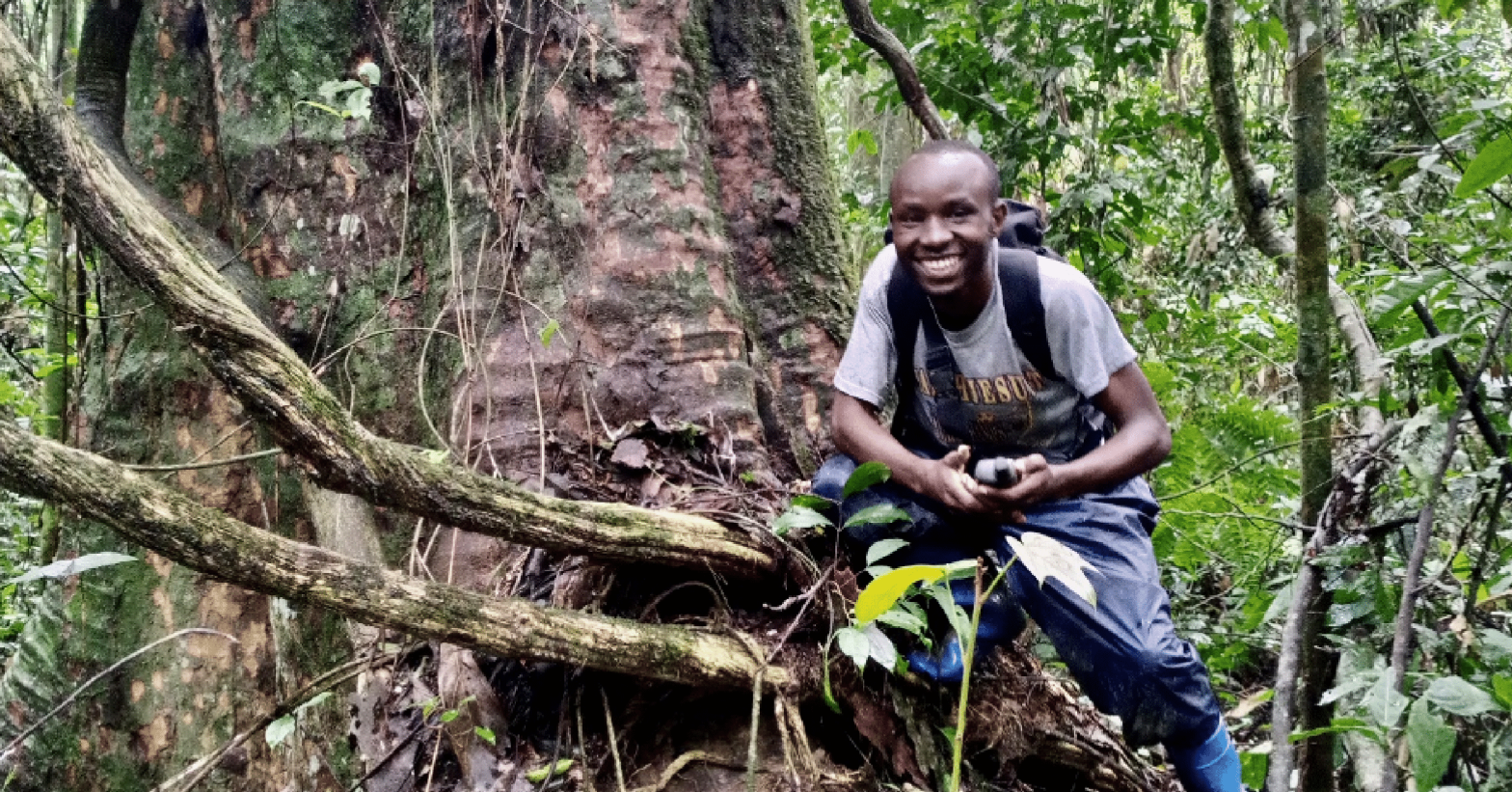By Remy Zahiga, Democratic Republic of the Congo
The Congo rainforest is located in Africa and shared by six African countries: The Democratic Republic of the Congo (DR Congo), Gabon, Central African Republic, Cameroon, Equatorial Guinea, and the Republic of Congo. By its size (some sources said 180 000 million hectares), the Congo rainforest is considered the world’s second lungs after the Amazon Forest.
According to World Wildlife Fund (WWF), the Congo rainforest has approximately 10000 species of tropical plants (30 percent are unique to the region), 400 species of mammals, 1000 species of birds, and 700 species of fish, along with endangered wildlife including forest elephants, chimpanzees, bonobos, Okapi (unique to the region), lowland and last mountain gorillas, etc.
The study conducted by researchers of the University of Maryland (UMD) in the USA, who analyzed satellite data collected between 2000 and 2014, finds that at current rates of deforestation in the Congo Rainforest, all the primary forest will be gone by the end of the century because the forest lost an area bigger than Bangladesh in the span of 15 years (Mongabay, 2018). The loss of the forest cover is impacting the forest’s ability to act rapidly as a carbon sink. If the forest is destroyed, we can’t breathe and if we can’t breathe, we can’t survive.
The forest is being destroyed by mining exploitation, small-scale agriculture, the impacts of climate change, and the forest is the only source of energy for cooking for locals.
I did not know the importance of the forest (like so many people here) in terms of climate change mitigation but after doing online research, reading books, and news about this, I found that the forest is under threat. I was scared about my future and the future of millions of people who depend on it for everything including medicine, clean water, agriculture, livestock, and climate mitigation.
In 2019, I decided to co-found a campaign on social media named SAVE CONGO RAIN FOREST (because so many people don’t know that the world’s second lungs are located in Africa) in order to advocate and raise awareness about the urgent need to protect and respect the rights of its indigenous people. In a few weeks, the campaign brought together activists from around the world (Europe, America, Africa, Australia, etc.). I have already visited some parts of the forest with my GPS and always share my trips on my social media, especially on Twitter and LinkedIn, in order to raise the conscience of the world.
I then started to receive audiences to bring to light the voice of the Congo rainforest at the national and international level. I have worked with local and international NGOs to say no when, in 2021, the government of the DR Congo planned to lift a 19-year-old moratorium on the granting of new logging licenses in the Congo Rainforest. We won the battle and now a draft law has been submitted to the DR Congo’s national assembly. The indigenous people of the Congo rainforest are facing stigma, discrimination and degradation of their natural habitat. Acting for adaption and resilience to the impact of climate change will secure their rights to land and resources.
Despite demanding our leaders to take climate action and do more for the protection of our lungs, I am preaching climate resilience to locals and adaptation measures with youths and schools, as well as planting trees with them to show them the importance of our forest at a global level. It’s a great pleasure that at the COP26, world leaders agreed to stop deforestation by 2030.
If we want to save our forests, we should give the indigenous people and local communities the opportunity to express their voice at every level of decision-making, give them access to clean energy, health care and decent education as a way to ameliorate their lives.
We can’t breathe if our forest can’t breathe. Visiting the forest with my GPS is the only way to help me collect data for my activism.
This blog was submitted as part of the #WFCKorea blog competition.
The first selection of competition finalists will be based on the number of comments, likes, and views each entry gets. Please consider supporting this entry by:
- Leaving a comment at the bottom of this post
- Showing your appreciation by clicking the “Like” button below
- Sharing this post via your social media channels, using the hashtag #WFCKorea

I enjoyed your energy of work. keep going, best of luck.
Really appreciate your activism. It’s incredibly important.
Great work. Keep going. Supporting your work.
Thanks for your courageous work in such a challenging place – you are an inspiration!